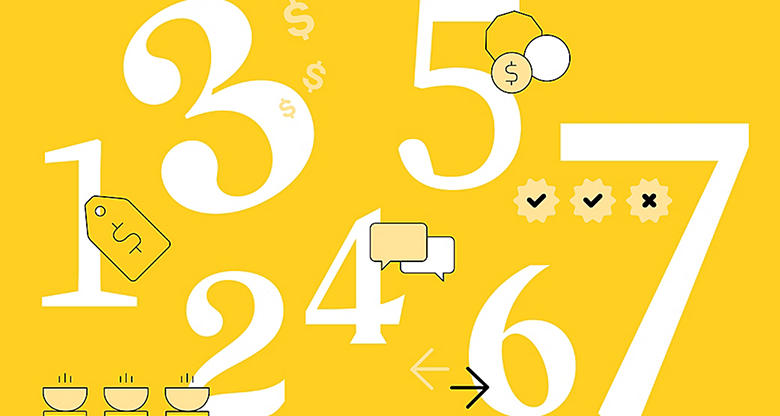This article is from the second issue of CommBank's magazine, Brighter.
When Julie went travelling with her then-boyfriend in Morocco, she remembers feeling tense and stressed as he haggled his way around the local markets. “He was comfortable with the negotiation but I couldn’t get out of there fast enough,” she says. “I kept thinking that if something was affordable, why not just pay the asking price?”
Her partner, Ben, on the other hand, couldn’t believe she’d part with more cash than needed to avoid an awkward conversation. Now married with kids, the pair found themselves in a similar situation as they tried to buy a family home. “We’d go back and forth on price. I wanted to settle on the first figure just to know the deal was done but Ben was willing to spend time in limbo to get a better price,” she says.
Plenty of people are uneasy when it comes to negotiating; others relish the battle to get the best price. But spoils may await if you’re willing to ask the question.
1. Know your price
Deciding the maximum you’re willing to pay before you start negotiating is key, especially
for big-ticket items, says Amanda Thompson, author of Financially Fit Women. “Setting a budget can seem restrictive. We think of it as penny-pinching and all about having to make a sacrifice,” she says. “Instead, when negotiating, think of sticking to your limit as contributing to your financial goals and security for the future.”
2. Do your research
Like Goldilocks, don’t have price expectations that are too high or too low. They need to be just right. Find out what going rates are for the product or service you’re buying. Do your market research online, in person and by talking to relevant experts. Look at recent sale prices and talk to people who’ve bought something similar and got a good deal.
Start with big-ticket items, such as cars and white goods, as they offer the best chance to get a better price, as well as second-hand items where the value is up for debate anyway.
3. Be confident
Don’t be embarrassed – many sellers are used to people asking for a better price when they make large purchases. “It’s a normal part of the process for them,” says Thompson. “Shift your mindset and see negotiations as a chance to protect your interests and financial goals.” In fact, many companies invite bargaining by encouraging customers to bring proof that a competitor has the same item for a better price – at the end of the day, they want your business.
4. Ask in the right way
Once you’ve made it clear that you want to make a purchase, a good place to start your negotiation: “Is that your best price?” Then, based on the salesperson’s response, share your reason. “You could explain that you’ve been paying X amount for a service and feel it’s overpriced for what you are getting,” says Helen Baker, financial advisor and founder of On Your Own Two Feet. “Or, based on your research, the asking price is too high.” If you’re not getting anywhere and it’s within your means, bundling items may boost your bargaining power. Asking “What if I buy two of them?” could change the tempo of the conversation.
5. Outsource it
You may actually get a better price by having someone else negotiate. If you have a friend or family member who’s a confident, skilled negotiator, ask them to step in. “And for a big item, consider paying an expert like a buyer’s agent,” says Baker. “Often, their fee pays for itself if you save money on a home or access an offer that you didn’t know about.”
6. See both sides
While you’re negotiating, consider the other person’s perspective. Consumers face rising living costs but businesses are facing soaring operating costs, too. So, while a salesperson may want to give a bigger discount, they simply can’t afford to. Perhaps you could ask what other add- ons or options they might have available to improve the offer.
7. Remember that you win some and lose some
The more you flex your negotiating skills, the better you’ll get at clinching a deal. But you won’t succeed every time. “Sometimes you will fail and feel frustrated,” says Baker. “If the negotiation isn’t working for you, it’s time to consider whether you really need this item right now and to remember something better could be around the corner.”
Story by Sarah Marinos.
Read more articles from Brighter magazine.



